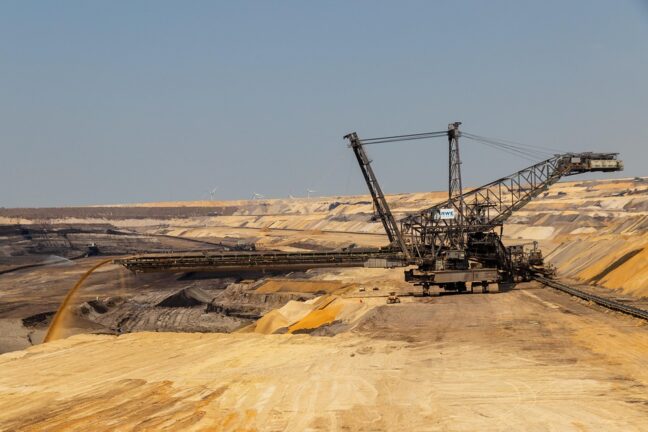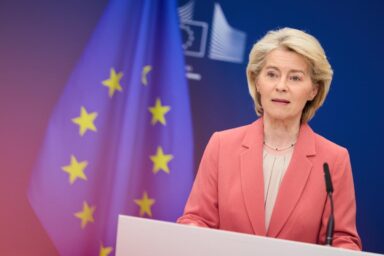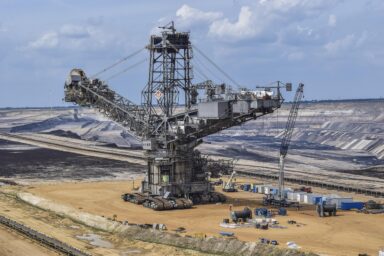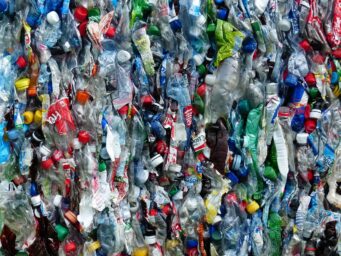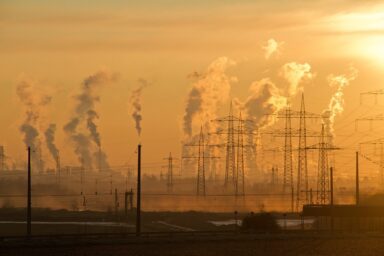Europe’s steelmaking, mining, and chemical industries, as well as cement and paper producers, welcome Brussels’ Industrial Decarbonisation Accelerator Act. Although still calling for more clarity, they expect the initiative to facilitate faster allowance of modernisation and decarbonisation efforts in their energy-intensive fields.
Europe’s heavy industry is hopeful for more speed. “We do hope that the Industrial Decarbonisation Accelerator Act complements what has been omitted in other more sector-specific legislative proposals to speed up the permitting, commissioning, and operationalization of decarbonized industrial installations,” Anna Zanetti, Communications and Events Manager of Euromines, told EU Perspectives.
She referred to the need “to make sure that our industry has the materials here in Europe” which Commission President Ursula von der Leyen mentioned in her State of the Union address of 2025. The president also pledged to speed up several legislative initiatives; the Industrial Decarbonisation Accelerator Act (IDAA), focused on energy-intensive industries, features prominently among them.
Clean transition of energy-intensive sectors
Initially mentioned in the Competitiveness Compass in January 2025, IDAA would build on parts of the provisions for renewable energy and the Net Zero Industry Act to speed up the allowance and clean transition of energy-intensive sectors as well as energy infrastructure projects of common interest.
The Industrial Decarbonisation Accelerator Act would introduce clean, resilient, circular, cybersecure criteria to strengthen demand for EU-made clean products and deliver clean European supply for energy-intensive sectors. It would facilitate faster permitting for modernisation and decarbonisation efforts of, for example, steel production sites.
You might be interested
Finally, IDAA should establish a low-carbon label, initially covering steel and then cement, to provide consumers with information on the carbon intensity of products. According to the Commission, the label would help companies achieve a green premium for their products.
Streamlining permission, that is what counts
“We fully support the IDAA, in particular when it comes to reviewing legislation that hampers and impedes the permitting of decarbonised industrial installations,” Ms Zanetti said. “After all, every new mine is a carbon-free mine and would support the raw materials base for the decarbonization value chains,” she added.
We do hope that the IDAA complements what has been omitted in other more sector-specific legislative proposals to speed up the permitting. — Anna Zanetti, Communications and Events Manager of Euromines
In general, heavy industry representatives are calling for easier and faster permitting processes, especially with regard to the introduction of low-carbon technologies.
According to Euromines, cooperation between the industry and public authorities is the key to success. “Permitting needs to be understood as aiming toward the shared success of both authorities and operators, pursuing the same objective,” says Anna Zanetti.
Grey areas need clarification
However, representatives of heavy industry and professional associations such as Euromines and Eurofer are calling for clarification of certain practical issues. “There are certain grey areas and overlaps that need to be clarified. For example: the Critical Raw Materials Act (CRMA) covers a specific range of burden reliefs for a subset of raw materials with the view to ensure security of supply. The envisaged IDAA plans to simplify the permitting for decarbonized industrial operations—to which mining can count to as well,” explains Anna Zanetti from Euromines. “How are these two principles interacting?” she asks.
Euromines (The European Association of Mining Industries, Metal Ores & Industrial Minerals) is the recognised representative of the European metals and minerals mining industry. It represents 15 national mining federations and 17 direct company members from the whole Europe. Euromines’ main objective is to promote the responsible industry practices and reflect the adequate consideration of mining in EU policy making.
